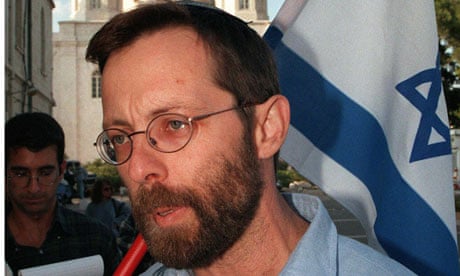Religious and ultra-orthodox Jews and inhabitants of West Bank settlements are expected to have disproportionately high representation in the new Israeli parliament, to be elected on Tuesday.
More than a third of members of the 19th Knesset are expected to be entering parliament for the first time, a much higher turnover of political representatives than in previous elections.
"There will be an over-representation of the religious and ultra-orthodox – around one in three members of the Knesset, according to the latest polls," said Ofer Kenig, of the Israel Democracy Institute. About one in five members of the last Knesset were religious or ultra-orthodox, he said.
"This is a very significant change. The explanation is not necessarily the demographic growth of this sector but the success of religious parties in attracting support from secular and traditional voters."
He said there would be "a very high representation of Jewish settlers", up to 20 of the 120 members of the Knesset. Less than 5% of Israel's population lives in West Bank settlements.
The new Knesset is expected to be the first in Israel's history without a member from a kibbutz. "Throughout Israel's history, kibbutzniks have played a very important part in shaping Israeli society, but they have always been a very small proportion of the population," Kenig said, adding that the new political elite was a coalition of West Bank settlers, ultra-orthodox, national-religious and rightwing city dwellers.
Among those expected to be elected is Orit Struck, a candidate for the ultra-nationalist Jewish Home party and a radical settler in the Palestinian city of Hebron.
This week, she defended her son, who is serving an 18-month prison sentence for abducting and assaulting a 15-year-old Palestinian boy, causing severe injuries. "Zviki is my firstborn and is sitting in prison for no fault of his own, because of his Arab neighbours," Struck told the NRG website.
Another Jewish Home candidate, Jeremy Gimpel, was the subject of a furore when a video revealed that he suggested in 2011 that the Dome of the Rock, the revered mosque in Jerusalem's Old City, could be "blown up" to allow the building of a third Jewish temple on the site, which is also sacred to Judaism.
"Imagine today if the golden dome, I'm being recorded so I can't say blown up, but let's say it was blown up, right, and we laid the cornerstone of the temple in Jerusalem … it would be incredible," he said. Following calls to disqualify him as a candidate, Gimpel said the remarks had been "a joke".
A third Jewish Home candidate, Hillel Horowitz, a rabbi also from the hardline Hebron settlement, called for Jewish settlers to return to Gaza and a West Bank outpost, which were evacuated in 2005. "We will do everything we can to work to return the people of Israel to Homesh in northern Samaria [the West Bank] and to Gush Katif [in Gaza]," Horowitz said on the religious zionist website Kipa, the Jerusalem Post reported.
Prime minister Binyamin Netanyahu's ruling Likud party, currently in an electoral alliance with the former foreign minister Avigdor Lieberman's Yisrael Beiteinu, is expected to be more hardline rightwing in the next parliament.
Among those expecting to become new Likud members of the Knesset is Moshe Feiglin, who this month proposed that the Israeli government pay Palestinians in the West Bank $500,000 a family to leave. "This is the perfect solution for us," he said.
Feiglin, a hardline settler from Karnei Shomron in the West Bank, was recently arrested for contravening Israeli law by praying near the Dome of the Rock and al-Aqsa mosque. His faction has sought more power and influence within Likud over recent years; he won 25% of the party vote last year when he challenged Netanyahu for the leadership. He told the Guardian he believed that "one day I will lead the state of Israel".
Another rising star on the Likud rightwing is Danny Danon, a Knesset member who has accelerated up the list of candidates in the election, which may give him leverage in the post-election scramble for ministerial jobs.
Danon advocates the annexation by Israel of large swaths of the West Bank and argues that Palestinians there and in Gaza should come under Jordanian and Egyptian control rather than having their own state.
He demanded the jailing of a fellow Knesset member, the Israeli-Arab Haneed Zoabi, branding her a "traitor" for taking part in the flotilla of ships attempting to break the blockade of Gaza in 2010. Danon told the Guardian that the hardening of rightwing opinion in Israel was "an awakening". The public, he said, "appreciates my message".








